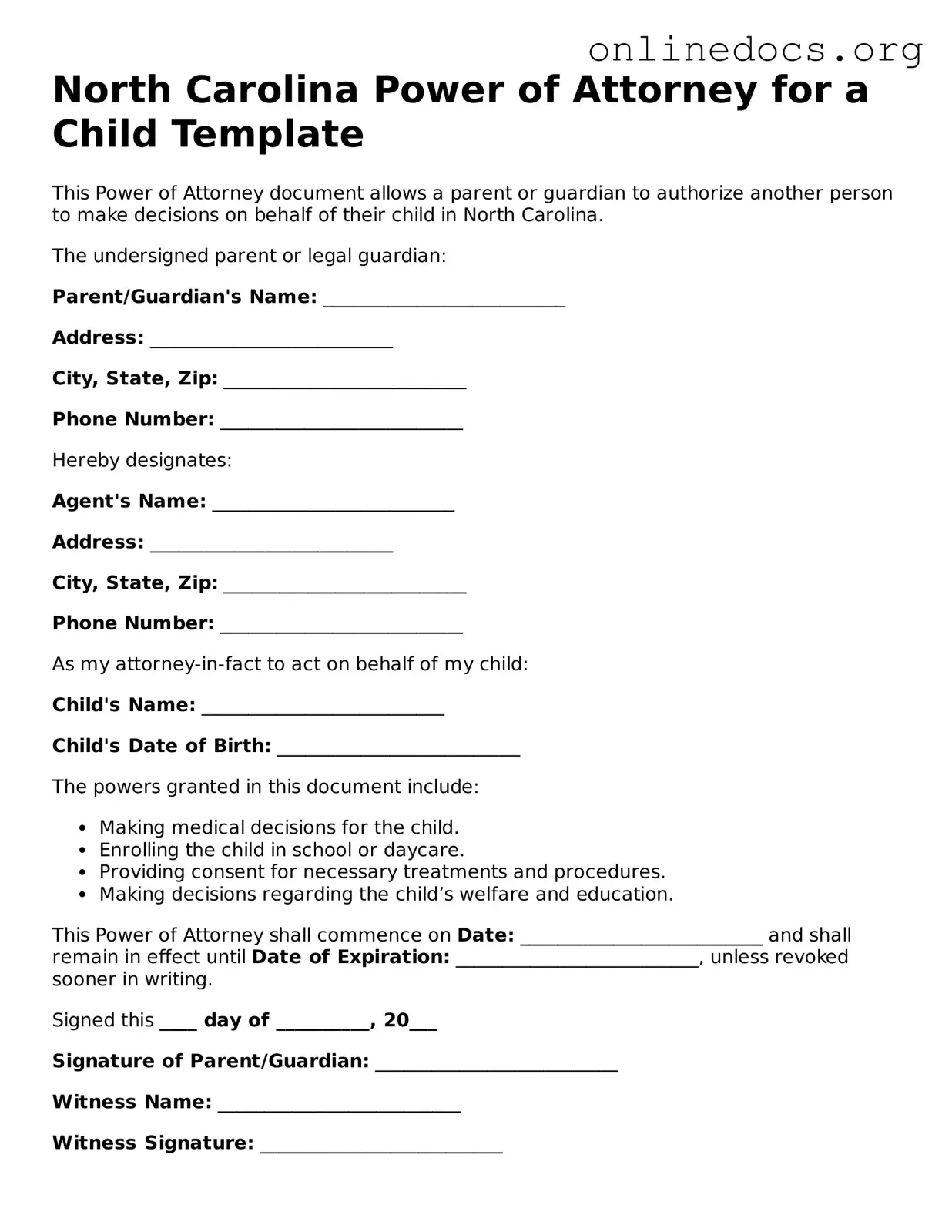Filling out the North Carolina Power of Attorney for a Child form can be a straightforward process, but many make critical mistakes that can lead to complications. One common error is failing to specify the child's full legal name. It is essential to include the child's first, middle, and last names to avoid any confusion or legal issues down the line.
Another frequent mistake is neglecting to provide the correct names and contact information of the agents. The individuals you designate must be clearly identified, including their full names, addresses, and phone numbers. Inaccurate or incomplete information can delay or invalidate the authority granted.
Many people also overlook the importance of signing the document in front of a notary public. This step is crucial to ensure the document's validity. Without notarization, the form may not be recognized by schools, medical facilities, or other institutions that require proof of authority.
Additionally, some fail to understand the duration of the power of attorney. It is vital to indicate whether the authority is temporary or ongoing. Clearly stating the start and end dates helps prevent misunderstandings regarding the agent's authority.
Another mistake is not considering the specific powers granted. The form should clearly outline what decisions the agent can make on behalf of the child. Vague language can lead to confusion and potential disputes in the future.
People often forget to review the form for any errors after completing it. Typos or incorrect information can lead to significant problems. A thorough review can save time and prevent complications later.
Some individuals may also neglect to inform the child about the arrangement. It is important to have an open conversation with the child about who will be responsible for their care and what that entails. This transparency can help ease any anxiety the child may feel.
Another common oversight is not keeping copies of the signed document. Once the form is complete, ensure that all parties involved have copies for their records. This practice helps to maintain clear communication and accountability.
Lastly, many people underestimate the importance of updating the document as circumstances change. Life events, such as moving, changes in the agent's availability, or changes in the child's needs, may require adjustments to the power of attorney. Regularly reviewing and updating the document is crucial to ensure it remains relevant and effective.
